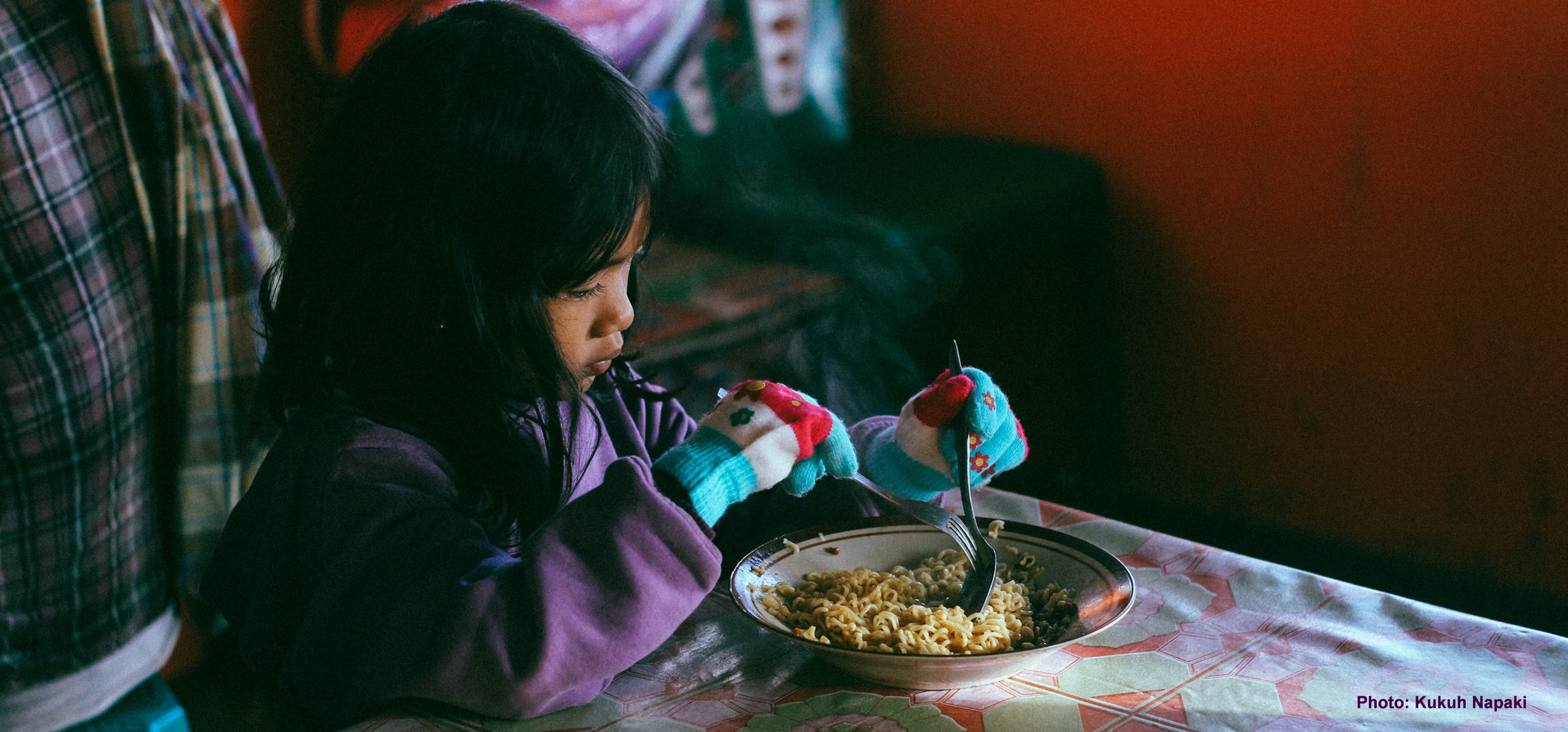Blog series: Endar Purnawan|Satisfying food needs in Indonesia in the times of COVID-19
Written by Endar Purnawan
The spread of COVID-19 is something that was never expected. It impacts all aspects of people’s lives and even tests a country’s endurance and capability. In Indonesia, the pandemic is still peaking with the number of the infected rising day by day. Large-scale social restriction policies were also implemented in the red zones with most COVID-19 cases. At the same time, medical personnel fight as much as possible at the frontline against the virus outbreak, even with modest facilities and equipment. Nevertheless, there are still many who doubt the handling of COVID-19 in Indonesia because the government has not enacted the lockdown by now and not been able to carry out more extensive testing.
Even though the government applies large-scale social restrictions (PSBB), social and economic impacts are increasingly tangible: a wave of dismissals as many companies have suspended their activity and therefore cannot pay their employees anymore, a subsequently high unemployment rate, many people left without any source of income and have a hard time surviving. Indonesia therefore faces another problem as a result of the spread of COVID-19: providing people with sufficient food during the crisis.
The government is trying to assist the community, especially those who are directly affected and those vulnerable due to lost income during the outbreak. The state budget will also be distributed to people in need, from the central government to the village budget. It is hoped that affected households will be able to meet the family’s food needs during the pandemic.
There are four types of government assistance for food needs available to the communities, such as:
- Program Keluarga Harapan (PKH) provides 10 million beneficiary families with a total budget of 37.4 trillion rupiahs (1 euro = 15,892 rupiahs). Previously, PKH was distributed every 3 months but now it will be distributed every month starting from April 2020;
- Basic Food Card Program will support 20 million Indonesian citizens. Each person gets 200,000 rupiahs per month starting from April to December 2020. The overall program budget is 43.6 trillion rupiahs. Previously this program was only given to 15.2 million people with a magnitude of 150,000 rupiahs per month from January to February 2020;
- Special assistance for groceries has been provided by the central government to citizens in Jakarta, Bogor, Depok, Tangerang, and Bekasi (Jabodetabek) and outside Jabodetabek as epicenters of the outbreak in Indonesia. This food assistance will be provided for 3 months and is equivalent to 600,000 rupiahs per month;
- Village Fund Assistance Program, which is given to 10 million families in villages. It will be available for 3 months and amounts to 600,000 rupiahs. The total budget for this program is 21 trillion rupiahs.
Food-related initiatives during the crisis are not only coming from the government but also from a widespread network of community groups. For instance, there is a movement called ‘one family for one family’, which means one family can cover the needs of another affected family. Thanks to another initiative rice boxes with nutritious food are daily distributed to those in need, while one more initiative delivers food to specific groups of people or organizations, e.g. orphanages. Moreover, public kitchens have recently been opened to further distribute cooked food to people in need. These efforts are carried out individually, by communities, by religious and social organizations, as well as by organizations that are specifically engaged in food security, such as food banks.
However, there are still some cases showing to what extent food security at the household level is shaken by this pandemic, for instance:
1) The case of a mother who died after two days of drinking only water, because she was unable to buy food. This mother leaves four children;
2) The case of stealing rice because of starvation;
3) The story of a father who struggled to get rice to feed his children, and more.
The above situation in Indonesia certainly requires the government to meet citizens’ needs during and after the pandemic, monitor the impact of the outbreak on the food system comprehensively from farmer to consumer level – from production and distribution to consumption, and be able to address problems at a macro- (national) and micro-level (household). For instance, from April to May (during the outbreak), wet season rice harvest occurs in various regions. Those regions follow a monsoonal rainy season pattern starting from North Sumatra, Riau, South Sumatra, Lampung, Java, Bali, and parts of Kalimantan-Sulawesi – all in 32 provinces. The next crucial step would be to manage yields from various regions in order to distribute them well to other areas that need food up to the household level.
Hence, the best way of dealing with this issue is to involve many parties: government, scientists (academics), farmers, the private sector, community organizations, and so on. This action should be carried out together from the national level to the community at the lowest level to make sure that food needs at the household level can be met during this pandemic situation. Moreover, Indonesia is famous with ‘gotong royong’ culture, which is solidarity or mutual cooperation culture where people help each other and work hand in hand for a common purpose and face difficulties together.


